8 must-watch House races in 2014
The Republicans will probably retain control of the chamber, but that doesn't mean there won't be some fun races to keep track of
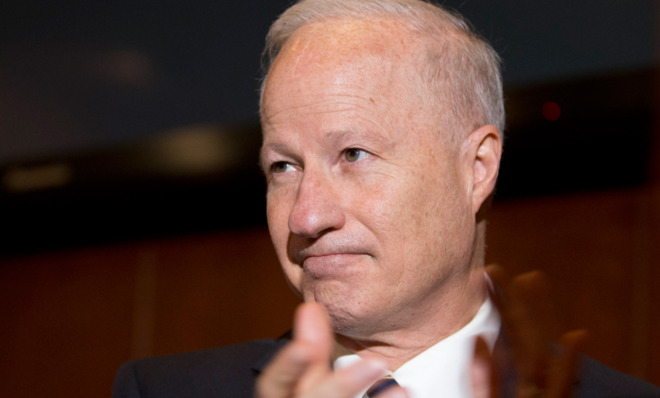
A free daily email with the biggest news stories of the day – and the best features from TheWeek.com
You are now subscribed
Your newsletter sign-up was successful
Democrats head into the 2014 midterms as clear underdogs when it comes to taking back the House of Representatives. The party needs a net increase of 17 seats to gain control, and that's a tall order this election cycle. Voters had blamed the Republicans for the disastrous 17-day government shutdown, but that was quickly overshadowed by the problems with the ObamaCare rollout. Furthermore, the president's sagging approval ratings will give GOP candidates an opportunity to link Democratic candidates to an increasingly unpopular White House.
Add the fact that the House's districts have been gerrymandered by state legislatures to favor the GOP, and you have a solid bulwark against Democratic attempts to win back the House.
But there are still a handful of highly competitive races that will have an impact on the makeup of Congress next year. From Florida to California to New York, the following eight campaigns are the ones to watch.
The Week
Escape your echo chamber. Get the facts behind the news, plus analysis from multiple perspectives.

Sign up for The Week's Free Newsletters
From our morning news briefing to a weekly Good News Newsletter, get the best of The Week delivered directly to your inbox.
From our morning news briefing to a weekly Good News Newsletter, get the best of The Week delivered directly to your inbox.
Florida's 13th District
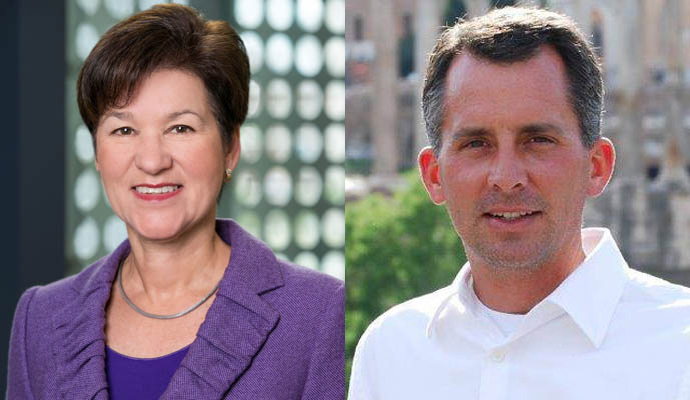
The candidates: Alex Sink, the former chief financial officer of Florida who lost her gubernatorial bid in 2010, is the Democrat in the race. She faces Republican David Jolly, a lobbyist and former staffer for the late Rep. Bill Young.
The big issues: Health care reform will be front and center in this race. Jolly opposes the Affordable Care Act and is running on a platform of repealing it. The Sink campaign plans on making Jolly's background as a lobbyist a main talking point.
The context: Young died in October of 2013, leaving the seat open. The special election, which will be held March 11, is considered a bellwether for the midterms, because the district is up for grabs in a decidedly purple state. Young won re-election in 2012 with 58 percent of the vote, but President Obama also carried the district that same year. (Obama won it in 2008 as well.) This is one of the seats Democrats are going to have to pick up if they have any hope of gaining control of the House.
A free daily email with the biggest news stories of the day – and the best features from TheWeek.com
What the polls say: This is Sink's race to lose. No surveys have been released with a head-to-head matchup, but officials from both parties say she's going to win.
The money war: Sink holds the fundraising advantage. She's raked in $1.1 million so far, while Jolly started the year with $142,000 cash on hand.
The fiercest ad: The Republican Party of Florida released a YouTube video attacking Sink for losing $27 billion in pension funds. Politifact called the video misleading because normal market fluctuations explain the decline, not corruption or incompetence.
Arizona's 2nd District
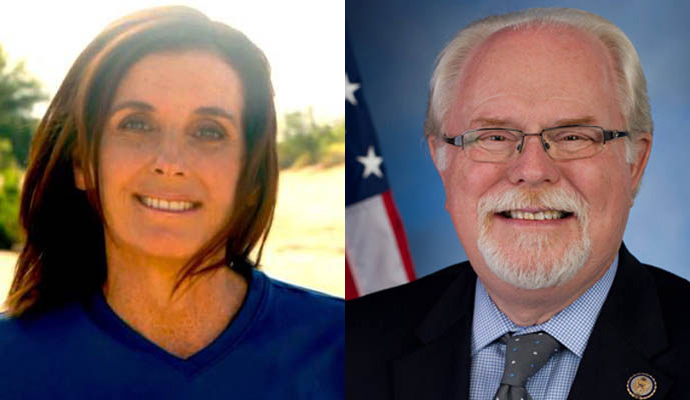
The candidates: Rep. Ron Barber (D) is running for re-election. Martha McSally, a retired Air Force officer, is his GOP opponent.
The big issues: Like most other races this fall, the Affordable Care Act will be a major talking point. Outside groups have already begun running ads against Barber, trying to tie him to the botched rollout. Also, gun control.
The context: This is a rematch between Barber, a former Gabby Giffords staffer, and McSally, who was the first female fighter pilot to fly in combat. Two years ago, in November 2012, Barber eked out the win against McSally by just 2,500 votes, so most people are expecting this race to be a close one, too. Barber won the seat in a special election in 2012 to replace Giffords, who retired after surviving a gunshot wound to the head during a constituent event in the district. Barber, who was also injured in the shooting, is a strong supporter of gun control, making him a target for conservative groups like Americans For Prosperity.
What the polls say: Few polls have been conducted on this race, but a survey commissioned by the National Republican Congressional Committee last summer found Barber and McSally in a virtual tie. That poll, which showed Barber getting 46 percent to McSally's 45 percent, was done before the latter officially announced her candidacy.
The money war: Between July and September of last year, Barber's donors chipped in $318,585 for his re-election, while McSally received $394,881 in contributions. Barber raised an additional $293,000 in the second quarter.
The fiercest ad: Americans For Prosperity released an ad in October that uses news footage to criticize health care reform. The spot urges voters to "call Congressman Ron Barber" and "tell him Washington can do better than ObamaCare."
Colorado's 6th District
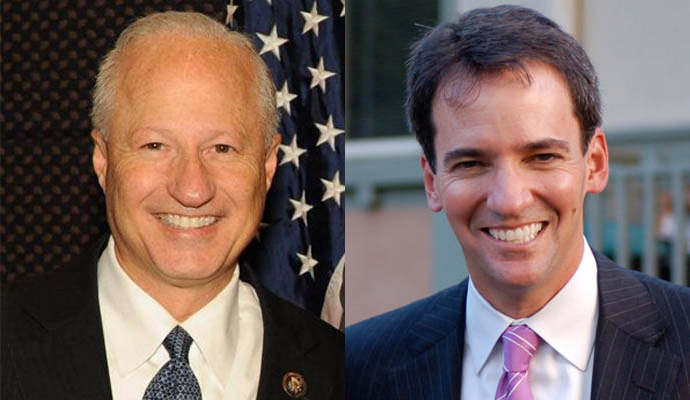
The candidates: Conservative GOP Rep. Mike Coffman is squaring off against Democrat Andrew Romanoff, a former speaker of the Colorado House.
The big issues: Strategists for both parties say this campaign is going to be a referendum on how voters feel about President Obama and Republicans in the House. Most district-level campaigns are at least, in part, about local issues, but this race will come down to national issues: The economic recovery, immigration reform, the government shutdown, and the ObamaCare rollout.
The context: This race is being billed as the toughest House contest of the 2014 midterms. Coffman won a third term by a mere two points in 2012, but President Obama carried the district with 52 percent of the vote that same year. The area is emblematic of the greater demographic shifts taking place across the country. Since 2009, the year Coffman took office, the district's share of Latino residents has increased from eight percent to 20 percent. The Democrats will slam Coffman for changing his position on immigration. In 2010, he called the DREAM Act a "nightmare." A year later, he introduced legislation to require ballots be written in English. More recently, however, he began advocating for comprehensive reform that includes citizenship for the children of undocumented immigrants. (Romanoff, who helped pass a law that required proof of residency for non-emergency aid, may have his own problems with Latino voters.) The National Republican Congressional Committee is pouring money into the race to help Coffman fend off the challenge, but the liberal-leaning House Majority PAC has zeroed in on the race to help flip the seat blue. The Democrats think they have a strong candidate in Romanoff, who is a household name across Colorado thanks to his time in the state House. Because the race is expected to be close, turnout will be key for this district, which encompasses Aurora, the Denver suburb made infamous by the movie theater shooting that killed twelve people in 2012.
What the polls say: This race is a toss-up, according to both the Cook and Rothenberg political reports. The voters are evenly split in thirds between Republicans, Democrats, and Independents.
The money war: Coffman and Romanoff have raised impressive war chests, amassing $1.2 million and $1.3 million, respectively, by the end of September 2013.
The fiercest ad: The House Majority PAC released an ad in October linking Coffman to the shutdown. "Madness. Full-blown insanity," the narrator of the 30-second spot intones. "That's what newspapers are saying about Mike Coffman and Republicans in Congress who are holding the economy hostage to pursue their extreme agenda."
Idaho's 2nd District
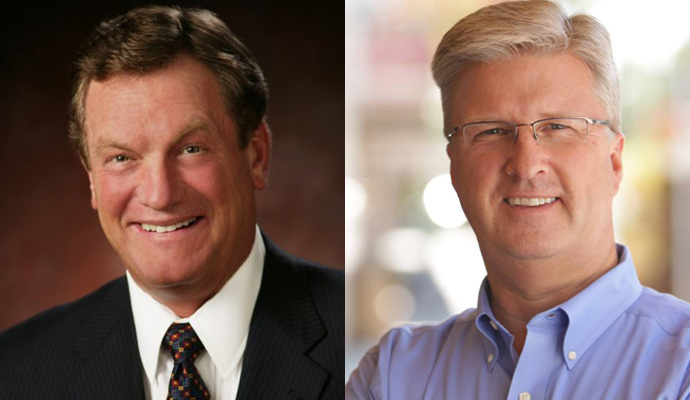
The candidates: Eight-term incumbent Mike Simpson (R) is hoping to fend off a tough primary challenge from Tea Party favorite Bryan Smith.
The big issues: Federal spending and the government shutdown will be important topics in this contest. Smith, a lawyer, has slammed Simpson's recent vote for a $1.1 trillion spending bill, and accused the congressman of adding to the country's debt.
The context: This race is all about the primary, which is scheduled for May 20. Party insiders are preparing for a grueling fight that will be a crucial test of whether establishment Republicans can fend off insurgent campaigns by Tea Party activists. (Even former presidential candidate Mitt Romney has waded into the race to back Simpson, an endorsement that could prove decisive as much of the district is Mormon.) Simpson is a close ally of House Speaker John Boehner (R-Ohio), whose presence in the race will give the incumbent a financial boost, but may wind up hurting Simpson in the closed Republican primary where voters tend to be more conservative. Smith has the backing of the Club for Growth, an anti-tax group targeting Republicans who don't strictly hew to its vision of fiscal austerity. (Simpson voted for the bank bailout and to end the latest government shutdown.) A dentist by trade, Simpson is hoping his seniority in the House — and his high-ranking position on the Appropriations Committee — will appeal to voters. Smith's strategy is to paint the incumbent as a Washington insider with liberal leanings.
What the polls say: Smith is considered the underdog, but his long lead time to the primary (the challenger jumped into the race in June) has given the voters time to get to know him.
The money war: Simpson has received more than $1.25 million in donations while Smith has raised $525,000, which includes some of his own money. Boehner has contributed $5,000 to Simpson's campaign. The American Dental Association, the American Chemistry Council, the Chamber of Commerce, and Main Street Advocacy, a group that supports centrist Republicans, have vowed to support Simpson, though they haven't announced how much they will spend.
The fiercest ad: A radio ad released by the Smith campaign in September labeled Simpson a "liberal" and attacked the congressman's values. "He even opposes efforts to defund ObamaCare," the announcer says in the 60-second spot. "That’s right. He won’t join conservatives like Ted Cruz, Mike Lee, and our own Raul Labrador, Jim Risch, and Mike Crapo in opposing any government spending bill that funds ObamaCare."
Nevada's 3rd District
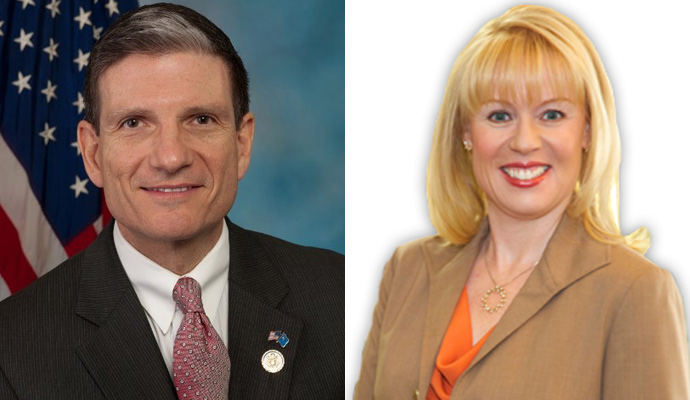
The candidates: Republican Rep. Joe Heck, an emergency-room doctor and Army Reserve officer, is seeking a third term. He faces Erin Bilbray-Kohn, a Democrat who founded Emerge Nevada, a non-profit that encourages women to run for political office.
The big issues: Immigration reform will dominate this race. Sixteen percent of the district is Latino and 12 percent is Asian-American.
The context: Heck was re-elected in 2012 by almost eight points even though President Obama won the district. Democrats still think this seat is a prime pickup opportunity thanks to shifting demographics. In the last two years, the Latino population has grown by five percent and the Asian population by more than 6 percent. There are now 10,000 more Democrats than Republicans in the district, which sits just south of Las Vegas. The congressman has a record that's hard to pigeonhole. He's voted dozens of times to repeal health care reform, but declined to support a budget that would assume ObamaCare was defunct. He voted to reauthorize the Violence Against Women Act, but then supported a measure that would ban abortions after 20 weeks. Bilbray-Kohn is a political legacy — her father was a Nevada congressman — and will focus her campaign on creating jobs and helping the middle class.
What the polls say: No polls have been released yet on this race, but operatives from both parties think it's going to be a close one.
The money war: From July to September, her first quarter as a candidate, Bilbray-Kohn raised $254,000. Heck has taken in more than $844,000 this cycle, and Boehner has traveled to Nevada to help boost that number.
The fiercest ad: The Democratic-leaning House Majority PAC is running an ad that hits the GOP over the idea a default wouldn't be that big of a deal. "They're playing a dangerous game," the narrator says. "But Congressman Heck votes with Republican leadership 90 percent of the time... Tell Congressman Heck to stop playing dangerous Republican games and start siding with us."
West Virginia's 3rd District
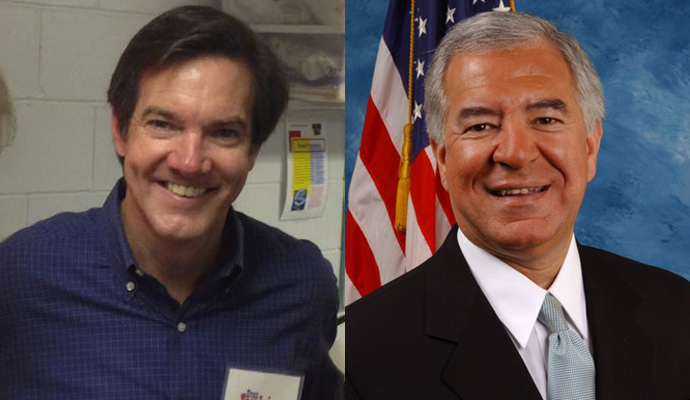
The candidates: Republican State Sen. Evan Jenkins is looking to unseat Democrat Rep. Nick Rahall. Richard Ojeda II, a retired Army officer, is challenging Rahall in the primary.
The big issues:Energy policy will be the top concern among West Virginia voters. Coal drives the state's economy, and President Obama's plan to regulate the industry's carbon dioxide emissions is very unpopular in the Mountain State.
The context: Rahall is a top target for the National Republican Congressional Committee, which placed the 19-term lawmaker on its "Red Zone" list of vulnerable Democratic incumbents. Romney carried the district by more than 32 points two years ago, and the GOP thinks it has a competitive candidate to take on the incumbent. Jenkins, who was a Democrat until July, has some baggage of his own. His party switch has opened him up to charges of political opportunism and flip-flopping. A centrist Democrat, Rahall has opposed Obama's efforts to regulate the coal industry — including the president's cap-and-trade plan — but will have to distance himselffrom his party even further to survive this race.
What the polls say: A poll commissioned by the Jenkins campaign shows Rahall leading by a four-point margin. Forty-five percent of voters have a favorable view of the incumbent, while 44 percent don't, and more than half believe he doesn't deserve a 20th term. The Cook Political Report has moved the race from "leans Democrat" to the "toss-up" column.
The money war: Jenkins' fundraising haul topped Rahall's in the third quarter of last year. Donors contributed more than $207,000 to the challenger's campaign, while Rahall took in $158,530. Rahall still had the edge with $474,000 cash on hand at the end of September.
The fiercest ad: In a 30-second spot, the NRCC accuses Obama of "strangling" the coal industry. "Nick Rahall is helping him do it," the announcer says, adding that Rahall's votes in Congress are killing the local economy. "Once Washington kills coal jobs, it kills all kinds of jobs in coal states like West Virginia. Waitress jobs. Realtor jobs. Carpenter jobs. Maybe next even your job."
New York's 19th District
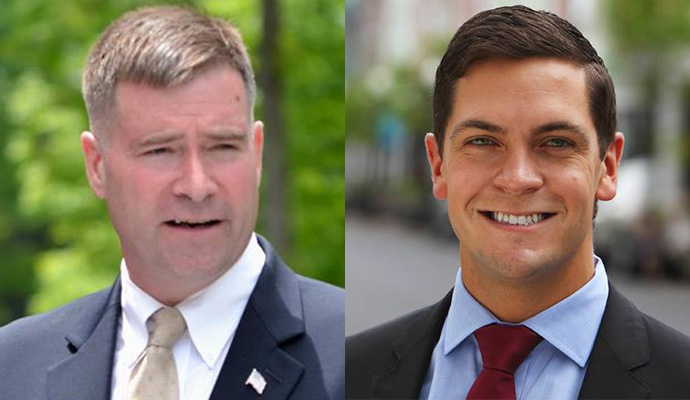
The candidates: GOP Rep. Chris Gibson was elected to the seat in 2010. His main challenger is Democrat Sean Eldridge, the husband of Facebook co-founder Chris Hughes.
The big issues: Given the large number of farms in the district, immigration reform is sure to be a top issue. Gibson's votes to repeal ObamaCare will also factor heavily in the race.
The context: Eldridge has the star power, the friends with deep pockets (Project Runway's Tim Gunn has contributed to the campaign), and the support of Gov. Andrew Cuomo (D), who will also be on the ballot next year. But the 27-year-old multimillionaire didn't purchase a home in the district until January of 2013, and it will be difficult for him to overcome charges of carpetbagging since he initially bought a house in another town where he was also considering running for Congress. Gibson, a decorated Army vet who served in the Gulf War, Kosovo, and Iraq, has deep ties to the community and lives near where he grew up. The congressman, who was named the most liberal Republican in the House by National Journal, was re-elected by a six-point margin in 2012 even though President Obama carried the area by six points as well.
What the polls say:A survey conducted last Fall by Public Policy Polling showed Gibson trailing a generic Democrat by one to six points.
The money war:By the end of September, Eldridge had raised $1 million, though $250,000 of that came from his own pocket. Gibson's campaign reported $713,021 in donations through the third quarter.
The fiercest ad: Two months before Eldridge announced his candidacy, the National Republican Congressional Committee released an ad painting him as a carpetbagger. "On today's episode of the Lifestyles of the Rich and Out-of-Touch," the spot begins, "Sean Eldridge! $700 million. Multi-million dollar homes all over the state of New York." The advertisement, which also accuses Eldridge of schmoozing with political elites and Hollywood starlets, warns him that he can't buy his way into Congress.
California's 17th District
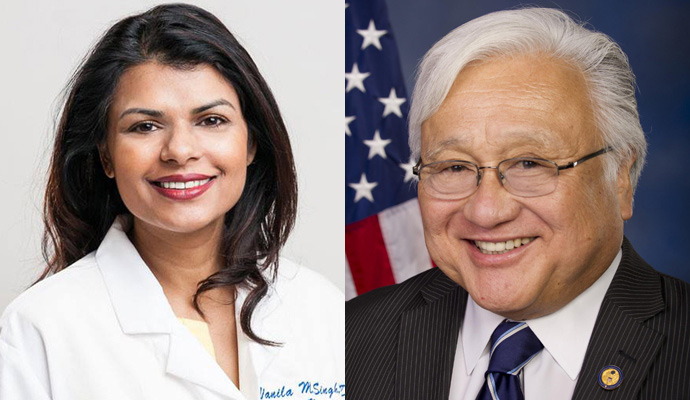
The candidates: Rep. Mike Honda (D), a seven-term incumbent, is facing a tough primary challenge from Ro Khanna, a lawyer and former Commerce Department official in the Obama administration. Dr. Vanila Singh is running as a Republican.
The big issues: This district is basically ground zero for the tech industry, so expect issues like net neutrality, immigration reform, and the government's (formerly secretive) big data collection programs to be front and center in this contest.
The context: On one side we have Honda, a well-liked and grandfatherly figure, who has racked up endorsements from President Obama and House Minority Leader Nancy Pelosi. On the other side is 37-year-old Khanna, who has drawn support from many of Silicon Valley's heavy hitters, including Yahoo! CEO Melissa Mayer, and has several of the president's top campaign advisors on his staff. Both have raised massive amounts of money at this stage in the game, leading observers to predict an all-out Democratic civil war for this district. Making things more complicated is California's new "jungle primary" system in which all of the candidates compete against each other in the primary regardless of party. The top two will face each other in the November general election, and it's increasingly looking like Honda and Khanna are in for a bruising nine-month fight. The district, which is now the first Asian-American majority district in the continental United States, leans heavily Democratic.
What the polls say: Honda has maintained a commanding, if slightly shrinking, lead in the polls. A survey in March done for the incumbent's campaign showed Honda with a 52-point advantage. By August, Khanna had closed the gap and was down by 34 points.
The money war: This could be the most expensive primary ever. Khanna has a substantial cash advantage, bringing in $402,000 in the last quarter of 2013 for a total haul of almost $2 million. Honda raised $250,000 from October to December and has $622,000 in the bank. Singh raised $100,000 in the first five days of her campaign, but that included $25,000 of her own money.
The fiercest ad: Despite the large sums of money flowing into the candidates' coffers, this race has been relatively light on the advertisements. Expect this to change once we get past the primary, when Honda and Khanna zero in on each other.
Laura Colarusso is a freelance journalist based in Boston. She has previously written for Newsweek, The Boston Globe, the Washington Monthly and The Daily Beast.
-
 Elon Musk’s pivot from Mars to the moon
Elon Musk’s pivot from Mars to the moonIn the Spotlight SpaceX shifts focus with IPO approaching
-
 ‘Hong Kong is stable because it has been muzzled’
‘Hong Kong is stable because it has been muzzled’Instant Opinion Opinion, comment and editorials of the day
-
 Magazine solutions - February 20, 2026
Magazine solutions - February 20, 2026Puzzle and Quizzes Magazine solutions - February 20, 2026
-
 The billionaires’ wealth tax: a catastrophe for California?
The billionaires’ wealth tax: a catastrophe for California?Talking Point Peter Thiel and Larry Page preparing to change state residency
-
 Bari Weiss’ ‘60 Minutes’ scandal is about more than one report
Bari Weiss’ ‘60 Minutes’ scandal is about more than one reportIN THE SPOTLIGHT By blocking an approved segment on a controversial prison holding US deportees in El Salvador, the editor-in-chief of CBS News has become the main story
-
 Has Zohran Mamdani shown the Democrats how to win again?
Has Zohran Mamdani shown the Democrats how to win again?Today’s Big Question New York City mayoral election touted as victory for left-wing populists but moderate centrist wins elsewhere present more complex path for Democratic Party
-
 Millions turn out for anti-Trump ‘No Kings’ rallies
Millions turn out for anti-Trump ‘No Kings’ ralliesSpeed Read An estimated 7 million people participated, 2 million more than at the first ‘No Kings’ protest in June
-
 Ghislaine Maxwell: angling for a Trump pardon
Ghislaine Maxwell: angling for a Trump pardonTalking Point Convicted sex trafficker's testimony could shed new light on president's links to Jeffrey Epstein
-
 The last words and final moments of 40 presidents
The last words and final moments of 40 presidentsThe Explainer Some are eloquent quotes worthy of the holders of the highest office in the nation, and others... aren't
-
 The JFK files: the truth at last?
The JFK files: the truth at last?In The Spotlight More than 64,000 previously classified documents relating the 1963 assassination of John F. Kennedy have been released by the Trump administration
-
 'Seriously, not literally': how should the world take Donald Trump?
'Seriously, not literally': how should the world take Donald Trump?Today's big question White House rhetoric and reality look likely to become increasingly blurred